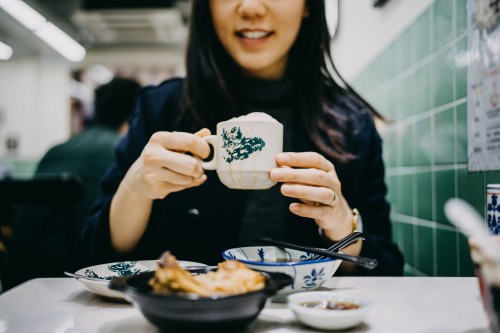Growing up, there was always an abundance of traditional Chinese medicines (TCM) in my kitchen cabinets. From herbs to dried mushrooms to white flower oil, my popo (grandmother in Chinese) would always whip out these remedies whenever I wasn’t feeling well. She’s not alone—for centuries, Chinese herbs have remained one of the oldest remedies for preventing and healing diseases, and they are especially known for their use in longevity.
Experts in This Article
Kyle Yoshioka is a the editor and content manager at Influential Point and holds a Master’s degree in TCM.
Liuhong Xu, LAc is a traditional Chinese medicine gynecologist and acupuncturist.
Mao Shing Ni, DOM, PhD, LAc, ABAAHP is a licensed acupuncturist and doctor of Chinese medicine. He teaches at Yo San University in Los Angeles, California.
“From the beginning of Chinese medical history, anti-aging and how to maintain health and wellness was paramount,” says Mao Shing Ni, DOM, PhD, LAc, doctor of Chinese medicine and chief formulator for Actual Being based in Los Angeles. In Chinese culture, good health (and thus longevity) is associated with harmony, the balance between yin and yang—which is often achieved using herbs.
“The nature or principle [of longevity] is to keep your body in balance and pay attention to your lifestyle as well,” says Liuhong Xu, LAc, a TCM gynecologist and acupuncturist for Redmint in San Francisco. Xu states that herbs should be paired with lifestyle habits such as healthy eating and exercise to yield the greatest health benefits.
“The relative ease with which the cultivation of medicinal herbs could fit into agrarian society made the regular consumption of herbs a foundational part of life,” adds Kyle Yoshioka, LAc, editor and content manager at Influential Point.
Because herbs can be so potent, it’s often best for novices to work with a TCM practitioner or other trusted herbalist to get some expert guidance before diving right in. They can help tailor treatments to work best with your unique needs while ensuring that nothing interacts poorly with medications or other herbs and supplements. But if you’re interested in exploring Chinese herbs for longevity, TCM practitioners dive into some of the best ones to know—and how to incorporate them into your daily life.
Keep reading for 4 essential Chinese herbs for longevity:
1. Ginseng
Also known as the “king of herbs,” ginseng is an adaptogen, aka a substance that helps the body react to stress and keep it in balance. “It helps the body manage its function during stress and helps prevent the aging process,” Dr. Ni says. It’s also anti-inflammatory, making it useful to support health and ward off chronic illnesses that can impact longevity.
How to use it: Ginseng can be processed into juice and teas. You can also enjoy ginseng in capsule or tablet form, making it easier to incorporate with any meal.
2. Huang Qi
Also referred to as astragalus, this Chinese plant is a powerhouse when it comes to protecting your body’s immune system, particularly as you age. The plant has been traditionally used to treat a variety of diseases and disorders including cancer and cardiac dysfunction. Another “benefit is that it helps to modulate your immune function,” Dr. Ni says, although conclusive scientific research on any of the plant’s benefits is scant. Just note that while astragalus is generally safe to take in small doses, it can potentially interact with immune-suppressant medication.
How to use it: The dried roots of astragalus can be added to any broth to spruce up your soup game. Check out your local Chinatown to find these greens. When visiting a Chinese herb shop, make sure to use its Pinyin name: “huang qi.”
3. Lingzhi
This mushroom has a long history of use in China, Japan, and other Asian countries. In Chinese, the name lingzhi represents immortality. According to research, the mushroom has medicinal and therapeutic properties that can enhance energy, increase memory, and support healthy aging. “Lingzhi is really good because they boost immunity,” says Xu.
How to use it: Add a lingzhi to a cup of hot water for a refresh. You can also find lingzhi in powders and dietary supplements.
4. Goji berry
Native to the northwest regions of China, the dried goji berry packs a myriad of health benefits including anti-aging properties and boosted immunity. Its potent antioxidant properties help alleviate free radicals or particles that cause stress, which combat inflammation (and thus promote longevity).
How to use it: “You can eat goji berries raw or dried. My favorite way to use them is to add them to a teapot, and drink the brew throughout the day” says Yoshioka. This berry can also be used in soups and herbal tea for a sweet and savory flavor.
Oh hi! You look like someone who loves free workouts, discounts for cult-fave wellness brands, and exclusive Well+Good content. Sign up for Well+, our online community of wellness insiders, and unlock your rewards instantly.
Sign Up for Our Daily Newsletter
Get all the latest in wellness, trends, food, fitness, beauty, and more delivered right to your inbox.
Got it, you've been added to our email list.










